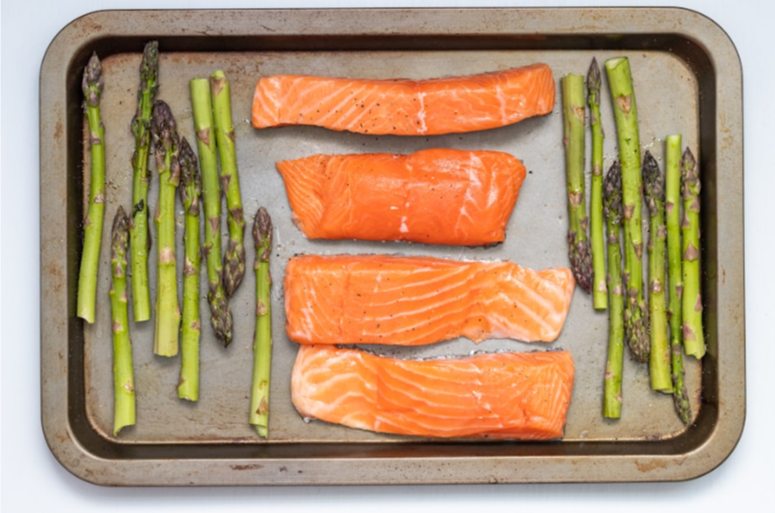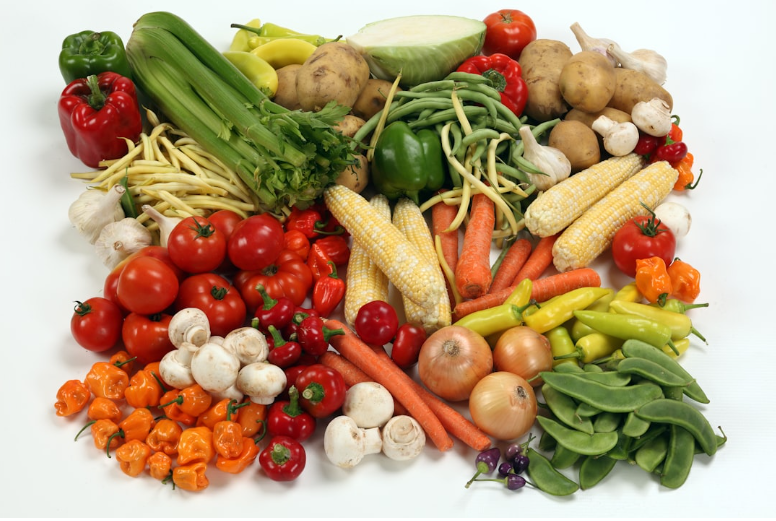When adhering to a ketogenic diet, it is common for individuals to prioritize the high-fat and low-carbohydrate components. However, the significance of vegetables in this eating plan is frequently underestimated. Vegetables are a vital component of a well-rounded and healthy diet, providing essential nutrients, fiber, and antioxidants.
When following a ketogenic diet, it is crucial to select vegetables that are low in carbohydrates to maintain ketosis while still benefiting from these nutrient-dense foods. Incorporating vegetables into a ketogenic diet can help provide essential vitamins and minerals that may be deficient in a high-fat, low-carbohydrate eating plan. Furthermore, the fiber present in vegetables can facilitate digestion and promote feelings of satiety, which can be advantageous for individuals following a ketogenic diet. For more insights on choosing the right vegetables on a keto diet, visit https://www.drberg.com/blog.
High-Carb Vegetables to Avoid on a Keto Diet
Starchy Vegetables to Avoid
Some examples of high-carb vegetables to avoid on a keto diet include potatoes, sweet potatoes, carrots, and beets. These starchy vegetables are higher in carbohydrates and can quickly add up, making it difficult to stay within the recommended carb limits for a keto diet.
Other High-Carb Vegetables to Limit
Other high-carb vegetables to avoid on a keto diet include peas, corn, and parsnips. These vegetables are also higher in carbohydrates and can hinder your progress on a keto diet if consumed in large amounts.
Low-Carb Alternatives for Keto-Friendly Vegetable Options
Fortunately, there are plenty of low-carb alternatives for keto-friendly vegetable options that can be incorporated into a keto diet. Some examples of low-carb vegetables that are suitable for a keto diet include leafy greens such as spinach, kale, and lettuce. These vegetables are low in carbohydrates and can be enjoyed in abundance on a keto diet.
Other low-carb vegetable options include broccoli, cauliflower, zucchini, and bell peppers, which are all low in carbohydrates and can be used in a variety of keto-friendly recipes. Additionally, avocados are an excellent source of healthy fats and are low in carbohydrates, making them an ideal choice for those following a keto diet. By choosing low-carb alternatives for keto-friendly vegetable options, you can still enjoy a wide variety of nutrient-dense foods while staying within the recommended carb limits for a keto diet.
The Impact of Avoiding Certain Vegetables on Keto Diet Success
| Vegetable | Net Carbs (g) per 100g | Reason to Avoid |
| Carrots | 6 | High in carbs |
| Peas | 9 | High in carbs |
| Corn | 21 | Very high in carbs |
| Potatoes | 17 | High in carbs and starchy |
Avoiding certain high-carb vegetables on a keto diet can have a significant impact on your overall success with the eating plan. By eliminating high-carb vegetables from your diet, you can maintain ketosis more effectively and experience the benefits of fat adaptation. Additionally, avoiding high-carb vegetables can help you stay within the recommended daily carb limits for a keto diet, which is crucial for achieving and maintaining ketosis.
However, it’s important to note that avoiding certain vegetables on a keto diet can also lead to potential nutrient deficiencies if not replaced with suitable alternatives. It’s essential to ensure that you are still getting a wide variety of nutrients from other low-carb vegetables to support overall health and well-being while following a keto diet.
Tips for Incorporating Keto-Friendly Vegetables into Your Diet

Incorporating keto-friendly vegetables into your diet can be easy with the right tips and strategies. One tip for incorporating keto-friendly vegetables into your diet is to plan your meals ahead of time and include a variety of low-carb vegetables in your recipes. This can help ensure that you are getting a wide range of nutrients while staying within the recommended carb limits for a keto diet.
Another tip is to experiment with different cooking methods and flavor combinations to make keto-friendly vegetables more enjoyable. Roasting, grilling, or sautéing vegetables with herbs and spices can enhance their flavor and make them more appealing in the kitchen. Additionally, incorporating keto-friendly vegetables into dishes such as salads, stir-fries, and soups can help add variety to your meals while following a keto diet.
Potential Pitfalls of Overconsumption of Certain Vegetables on a Keto Diet
Portion Control is Key
It’s important to be mindful of portion sizes and carb counts when incorporating vegetables into a keto diet to ensure that you stay within the recommended daily carb limits. For additional information on portion sizes and carb counting, check out MyPlate.gov.
The Fiber Factor
Additionally, some individuals may experience digestive issues from overconsumption of certain high-fiber vegetables on a keto diet. It’s essential to listen to your body and make adjustments as needed to ensure that you are not experiencing any adverse effects from consuming too many fibrous vegetables.
Listen to Your Body
By being aware of your body’s response to different vegetables and making adjustments accordingly, you can enjoy the benefits of a keto diet while minimizing potential drawbacks.
Balancing Vegetable Intake for Optimal Keto Diet Results
Balancing vegetable intake for optimal keto diet results is crucial for long-term success with the eating plan. By choosing a variety of low-carb vegetables and incorporating them into your meals in moderation, you can ensure that you are getting essential nutrients while staying within the recommended carb limits for a keto diet. It’s important to be mindful of portion sizes and carb counts when incorporating vegetables into your meals to maintain ketosis effectively.
Additionally, balancing vegetable intake with other sources of fats and proteins can help create a well-rounded and satisfying eating plan while following a keto diet. By focusing on whole, nutrient-dense foods and incorporating a variety of low-carb vegetables into your meals, you can achieve optimal results with a keto diet while supporting overall health and well-being. In conclusion, understanding the role of vegetables in a keto diet is essential for long-term success with the eating plan.
By choosing low-carb alternatives for keto-friendly vegetable options and balancing vegetable intake for optimal results, you can enjoy the benefits of nutrient-dense foods while maintaining ketosis effectively. With the right tips and strategies for incorporating keto-friendly vegetables into your diet, you can create a well-rounded eating plan that supports overall health and well-being while following a keto diet. By being mindful of portion sizes and carb counts when incorporating vegetables into your meals, you can achieve optimal results with a keto diet and avoid potential pitfalls associated with the overconsumption of certain high-carb vegetables.
FAQs
What is a keto diet?
A keto diet is a low-carb, high-fat diet that has been shown to help with weight loss and improve overall health. It involves reducing carbohydrate intake and replacing it with fat, putting the body in a state of ketosis where it burns fat for energy.
Why should you avoid certain vegetables on a keto diet?
Some vegetables are higher in carbohydrates and can potentially kick you out of ketosis, making it harder to maintain the fat-burning state that is essential for a keto diet. It’s important to choose low-carb vegetables to stay within your daily carb limit.
Which vegetables should be avoided on a keto diet?
Vegetables that are higher in carbohydrates, such as potatoes, sweet potatoes, carrots, and corn, should be avoided or limited on a keto diet. These vegetables can quickly add up in terms of carb content and may hinder your progress on a keto diet.
What are some keto-friendly vegetables to include in your diet?
Keto-friendly vegetables include leafy greens like spinach, kale, and lettuce, as well as cruciferous vegetables such as broccoli, cauliflower, and Brussels sprouts. These vegetables are low in carbohydrates and can be included in a keto diet in moderation.
How can avoiding certain vegetables impact your success on a keto diet?
Avoiding high-carb vegetables on a keto diet can help you stay within your daily carb limit and maintain ketosis, which is crucial for burning fat and achieving success on a keto diet. Including the right vegetables can also provide essential nutrients and fiber for overall health and well-being.
Brit is a passionate writer with a love for storytelling and exploring the depth of human experience through words. With a keen eye for detail and a thoughtful voice, Brit crafts pieces that resonate with readers and spark meaningful reflection. When not writing, Brit enjoys quiet moments with a good book, long walks, and finding inspiration in everyday life.






